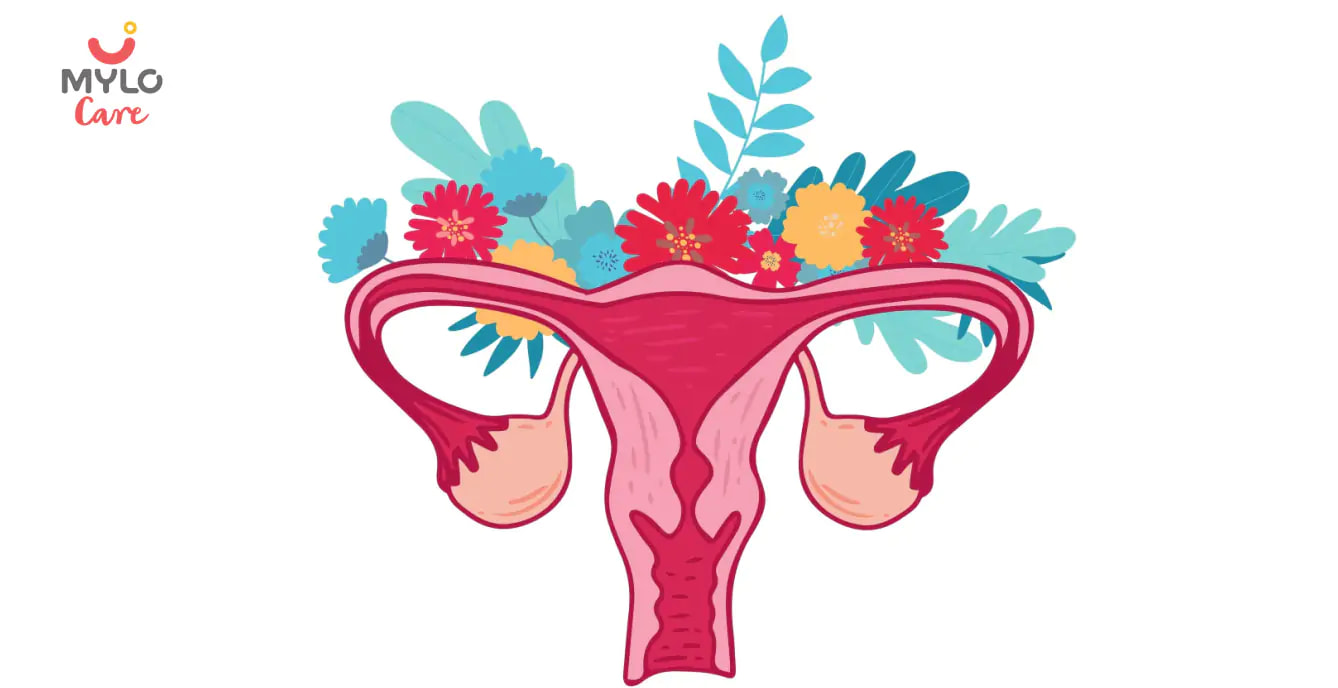Home

PCOS & PCOD

PCOS Self-Care: How to Nurture Your Body and Mind
In this Article

PCOS & PCOD
PCOS Self-Care: How to Nurture Your Body and Mind
Updated on 7 December 2023
From the outside, Riya seemed like any other woman, navigating life with grace and confidence. But on the inside, an invisible battle was raging inside her. PCOS had woven its web of hormonal imbalances, leaving her feeling exhausted, frustrated, and disconnected from her own body. The quest for PCOS self-care became a lifeline, an essential path to reclaiming her body and nurturing her mind.
So, whether you are a fellow PCOS warrior seeking solace, a friend or family member looking to understand and support your loved one better, or simply someone keen to explore the transformative nature of self-care, this article is for you. Join Riya on her journey to explore effective ways to manage PCOS.
Home Remedies for PCOS
When it comes to managing PCOS, there are several home remedies you can incorporate into your daily routine. These remedies aim to alleviate symptoms and promote hormonal balance.
1. Apple Cider Vinegar
One popular remedy is apple cider vinegar, which can help regulate blood sugar levels and improve insulin sensitivity.
2. PCOS Tea
PCOS Tea is a unique blend of herbs and spices like Shankh Pushpi, Shatavari, Manjistha, and Chamomile that can help promote hormonal balance, improve insulin sensitivity, regulate menstrual cycles and control acne.
3. Regular Exercise
Engaging in regular physical activity of at least 150 minutes per week can improve insulin sensitivity and help manage weight, which is beneficial for PCOS.
4. Flaxseeds
Flaxseeds are rich in omega-3 fatty acids, which have anti-inflammatory properties and may help regulate menstrual cycles.
5. Relaxation Techniques
Chronic stress can disrupt hormone balance, so practicing relaxation techniques like meditation, deep breathing, or yoga can be helpful.
Yoga for PCOS
Yoga is a holistic practice that combines physical postures, breathing exercises, and meditation. It can be an excellent self-care tool for women with PCOS, as it helps reduce stress, regulate hormones, and improve overall well-being. Certain yoga poses specifically target PCOS symptoms and promote reproductive health. Let's explore five yoga poses for PCOS:
1.Supta Baddha Konasana (Reclining Bound Angle Pose)
This pose helps open up the hips and improve blood circulation to the reproductive organs.
2. Bharadvajasana (Seated Twist)
Twisting poses like this one massage the abdominal organs, promoting hormonal balance and digestion.
3. Dhanurasana (Bow Pose)
This pose stretches the abdominal muscles and stimulates the ovaries.
4. Janu Sirsasana (Head-to-Knee Forward Bend)
It helps regulate menstrual cycles and relieves stress.
5. Viparita Karani (Legs-Up-The-Wall Pose)
This gentle inversion pose improves blood flow to the pelvic region and reduces stress.
You may also like : PCOS Tea: A Warm Cup of Tea to Help You Keep PCOS at Bay
PCOS Diet Chart
Besides practising yoga and home remedies for PCOS, a well-balanced diet can play a crucial role in managing its symptoms. It should focus on regulating insulin levels, maintaining a healthy weight, and reducing inflammation.
Foods for PCOS
Incorporating certain foods into your diet can help alleviate symptoms associated with PCOS. These include:
1. Leafy greens
Spinach, kale, and Swiss chard are rich in antioxidants and can help reduce inflammation.
2. Lean proteins
Opt for sources like chicken, fish, and tofu to support hormone production and aid in weight management.
3. Healthy fats
Include avocados, nuts, and olive oil in your diet to promote hormonal balance.
4. Fiber-rich foods
Whole grains, legumes, and fruits like berries can help regulate blood sugar levels and improve digestion.
You may also like : Polycystic Ovary Syndrome (PCOS) : Treatment & Management
Foods to Avoid with PCOS
On the other hand, there are foods that should be avoided or limited if you have PCOS. These include:
1. Processed foods
High in refined sugars and unhealthy fats, these can exacerbate insulin resistance and inflammation.
2. Sugary beverages
Soft drinks, juices, and energy drinks can lead to weight gain and worsen PCOS symptoms.
3. Trans fats
Found in fried and packaged foods, trans fats can increase insulin resistance and inflammation.
Also Read : PCOD vs. PCOS: The Ultimate Guide to Understanding the Key Differences
Ayurvedic Medicine for PCOS
Ayurveda, the traditional Indian system of medicine, offers natural remedies that can help you on your PCOS self-care journey. Here’s how PCOS Ayurveda treatment can be beneficial:
1. Shatavari
This herb helps regulate hormonal imbalances and supports reproductive health.
Read More About : Shatavari
2. Ashwagandha
Known for its adaptogenic properties, ashwagandha helps reduce stress and balance hormones.
Read More About : Ashwgandha
3. Guduchi
This herb boosts immunity and improves insulin sensitivity.
4. Triphala
A combination of three fruits, triphala aids in digestion and detoxification.
5. Aloe Vera
It can help regulate menstrual cycles and reduce inflammation.
It's important to consult an Ayurvedic practitioner before incorporating these medicines into your routine, as they can interact with certain medications.
Homeopathic Medicine for PCOS
Homeopathy is another alternative medicine approach that can be used to manage PCOS symptoms. Here are five commonly used homeopathic medicines for PCOS:
1. Pulsatilla
It is often prescribed for irregular periods and hormonal imbalances.
2. Sepia
This medicine is beneficial for women experiencing mood swings and irritability.
3. Lachesis
It is recommended for women with excessive bleeding during periods and other menstrual irregularities.
4. Natrum Mur
This medicine helps regulate hormonal imbalances and reduce excessive hair growth.
As with Ayurvedic medicine, it's essential to consult a qualified homeopathic practitioner before starting any homeopathic treatment.
PCOS Non-Hormonal Treatment
The medical treatment for PCOS often relies on hormonal birth control pills and in severe cases, laproscopic ovarian drilling- an invasive surgery. Consequently, many women find themselves looking for non-hormonal treatment for PCOS. Inositols, a type of sugar alcohol that naturally occurs in foods and can be found in two forms: myo-inositol and D-chiro-inositol, have proven beneficial for women with PCOS.
Myo-inositol has especially been found to improve insulin sensitivity, restoring menstrual regularity, reducing androgen levels and improving fertility. Women searching for non-hormonal treatment options for PCOS can also consider Mylo's chewable Myo-inositol tablets, which are fortified with Quatre Folic and Vitamin D and can help promote hormonal balance and overcome common as well as specific PCOS/PCOD challenges.
Prioritizing Self-Care for PCOS Management
Managing PCOS requires a holistic approach that prioritizes self-care. It's important to remember that self-care goes beyond just physical practices. Taking care of your mental and emotional well-being is equally crucial. Here are some key takeaways to help you nurture your body and mind while managing PCOS:
1. Practice stress management
Engage in activities that help you relax and reduce stress, such as meditation, deep breathing exercises, or journaling.
2. Enagage in regular exercise
Engaging in regular physical activity not only helps with weight management but also improves mood and hormonal balance.
3. Prioritize sleep
Aim for at least 7-8 hours of quality sleep each night to support overall well-being and hormonal regulation.
4. Seek support
Connect with support groups or seek professional help to navigate the emotional challenges that come with managing PCOS.
5. Stay consistent
Be patient and consistent with your self-care practices. It may take time to see significant improvements, but with dedication, you can achieve a healthier and happier life with PCOS.
In conclusion, PCOS self-care is essential for nurturing your body and mind when living with this condition. By incorporating home remedies, practicing yoga for PCOS, following a PCOS diet, and exploring alternative medicine options, you can effectively manage your symptoms and improve your overall well-being. Remember to consult with healthcare professionals before making any significant changes to your routine, and always prioritize self-care as an integral part of your PCOS management journey.
References
1. Sheehan MT. (2004). Polycystic ovarian syndrome: diagnosis and management. Clin Med Res.
2. Lakshmi JN, Babu AN, Kiran SSM, Nori LP, Hassan N, Ashames A, Bhandare RR, Shaik AB.(2023). Herbs as a Source for the Treatment of Polycystic Ovarian Syndrome: A Systematic Review. BioTech (Basel).
3. Manouchehri A, Abbaszadeh S, Ahmadi M, Nejad FK, Bahmani M. (2023). Polycystic ovaries and herbal remedies: A systematic review. JBRA Assist Reprod.



Written by
Ravish Goyal
Official account of Mylo Editor
Read MoreGet baby's diet chart, and growth tips

Related Articles
Related Topics
RECENTLY PUBLISHED ARTICLES
our most recent articles

Diet & Nutrition
Special Home Remedies For Gas During Pregnancy

PCOS & PCOD
PCOD Problem After Marriage: Debunking Common Misconceptions and Finding Solutions

Ovulation
White Discharge After Ovulation: A Normal Occurrence or Cause for Concern?

Ovaries
Normal Ovary Size: How It Varies and What It Means for You

Festivals & Celebrations
2024 Calendar with Holidays and Festivals of India

Abortion
After-Abortion Sex: A Guide to Physical and Emotional Wellness
- Cervical Cerclage: A Closer Look at the Procedure and Its Benefits
- The Ultimate Guide to Panchatantra Stories for Kids
- Which Is Better Normal Or Cesarean Delivery
- How to Get Baby in Right Position for Birth?
- Paheliyan 101: Riddles for Kids That Educate and Entertain
- The ABCs of Cephalic Presentation: A Comprehensive Guide for Moms-to-Be
- The Ultimate Guide to Consuming Chia Seeds in Pregnancy
- Essential Tips for Normal Delivery After Cesarean
- Crab During Pregnancy: Benefits, Risks and Smart Choices
- Normal Delivery Tips: An Expecting Mother's Guide to a Smooth Childbirth Experience
- Top 10 Panchatantra Stories in English You Must Read to Your Children
- What Helps in Improving Mental Health of Women
- Childhood Disorders: Meaning, Symptoms & Treatment
- Bleeding During Pregnancy 8 Weeks: Should You See a Doctor?


AWARDS AND RECOGNITION

Mylo wins Forbes D2C Disruptor award

Mylo wins The Economic Times Promising Brands 2022
AS SEEN IN

- Mylo Care: Effective and science-backed personal care and wellness solutions for a joyful you.
- Mylo Baby: Science-backed, gentle and effective personal care & hygiene range for your little one.
- Mylo Community: Trusted and empathetic community of 10mn+ parents and experts.
Product Categories
baby carrier | baby soap | baby wipes | stretch marks cream | baby cream | baby shampoo | baby massage oil | baby hair oil | stretch marks oil | baby body wash | baby powder | baby lotion | diaper rash cream | newborn diapers | teether | baby kajal | baby diapers | cloth diapers | laundry detergent 6472 | lactomama lactation granules |




